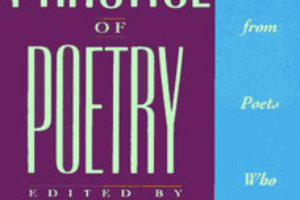
The Personal Benefits of Writing Poetry
Poetry writing is an excellent practice for strengthening one’s writing skills. Through poetry writing, we gain command of language, cultivate a robust vocabulary, master literary devices, and learn to work in imagery. And that’s just a small sampling of how poetry improves basic writing skills. However, poetry has other benefits that are meaningful on a…Read More

Homophones, Homonyms, and Homographs
They perplex us, confuse us, and make our heads spin. If you thought learning how to correctly spell words that sound alike was difficult, wait till you try to learn the terms for describing those words. Homophones Homophones are words that are pronounced alike but have different meanings. Some examples are accept and except, affect…Read More

Getting Out of Your Comfort Zone
Today’s post is an excerpt from Ready, Set, Write: A Guide to Creative Writing. This is from a chapter titled “Getting Out of Your Comfort Zone,” which encourages you to try new forms and genres of writing. Have you ever wondered what it would be like to explore a completely new form of writing? Are you willing…Read More

Keeping a Journal Makes You a Better Writer
The more you write, the better your writing becomes. That’s not an opinion; it’s a fact. Experience breeds expertise, so if you write a lot, you’ll become an expert writer. Writing every day is the best way to acquire lots of experience. Writers who come to the craft out of passion never have a problem…Read More

Writing Resources: The Practice of Poetry
This post contains affiliate links. When it comes to writing resources, there are some special books out there that will help make you a better reader and a more well-rounded writer. Some academics argue that poetry is an intellectual pursuit, but that’s only partially true. Poetry is also artistic and emotional. Anyone can enjoy poetry,…Read More

“What-if?” Journal Prompts
What if you won the lottery? What if you woke up in someone else’s body? What if you could fly? What if you could open your imagination to a whole new world of writing ideas? Today’s journal prompts encourage you to wonder. Some of them are based on reality. Others ask you to step outside…Read More

From 101 Creative Writing Exercises: The Great Debate
Today’s post is from 101 Creative Writing Exercises. This exercise is from “Chapter 9: Philosophy, Critical Thinking, and Problem Solving.” It’s called “The Great Debate.” Enjoy! Logic, order, and organization are essential in clear and coherent writing, whether you’re telling a story or writing a poem. Critical thinking is a fundamental writing skill. If a…Read More

Where to Find Ideas for Writing a Story
It always seem like there are too many writing ideas or not enough. When you don’t have time to write, ideas come hurtling out of nowhere. Sometimes they come so fast, you can’t even write them all down. But when you sit down, stretch your fingers, and lean over your keyboard to start typing, nothing…Read More

Grammar Rules: Who vs. Whom
It sounds old-fashioned: To whom have you sent those letters? Modern colloquial speakers expect something more along the lines of Who did you send those letters to? While whom may sound outdated, it is still the technically correct word in certain situations. Let’s examine the rules and practices surrounding who vs. whom. One of our…Read More

Constraints and Creativity for Writers
Lots of writers feel restricted by rules and constraints. I’ve seen writers rail against constraints ranging from the submission guidelines on an agent’s website to the specifications of a creative writing exercise. I once witnessed a rant by an author whose story didn’t fit into any genre that could be found on Amazon (or in…Read More



